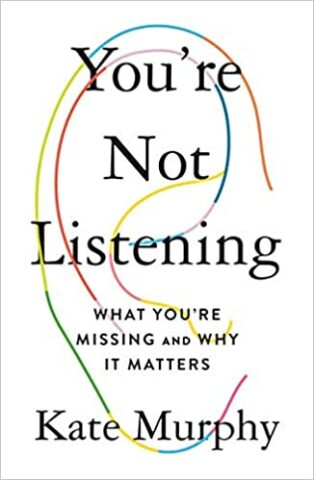Listen very carefully
Listening is an art, not an exact science. No ready-made formula can replace your openness to others, or your desire to discover what they have to tell you. However, you can create the right conditions for listening — and be aware of avoidable pitfalls.

You’re not listening by Kate de Murphy (Celadon Books, 2019)
1/ CREATE A GOOD ENVIRONMENT FOR TALKING
Before starting a conversation, make sure the conditions are right for it to take place — ones in which you will be able to really listen:
- Avoid noisy, open-space environments, with lots of people coming and going. Opt instead for a meeting room or a quiet office. Perhaps you could even go outside, if that’s a possibility. Some people are better at talking and listening when they are walking.
- If you can’t have a face-to-face dialogue, try a phone call rather than emails and texting — these don’t let you hear the tone of voice, and the tone of voice can tell you a lot.
- Know and set your limits. You can’t listen to everyone all the time. You risk hitting a saturation point. Determine the people you need to speak with most and what availability you have, and communicate this clearly.
- Make your colleagues aware of any hearing difficulties. Hearing loss is very common, even at a young age, but often goes unnoticed, leading to awkwardness and misunderstandings.
© Copyright Business Digest - All rights reserved




